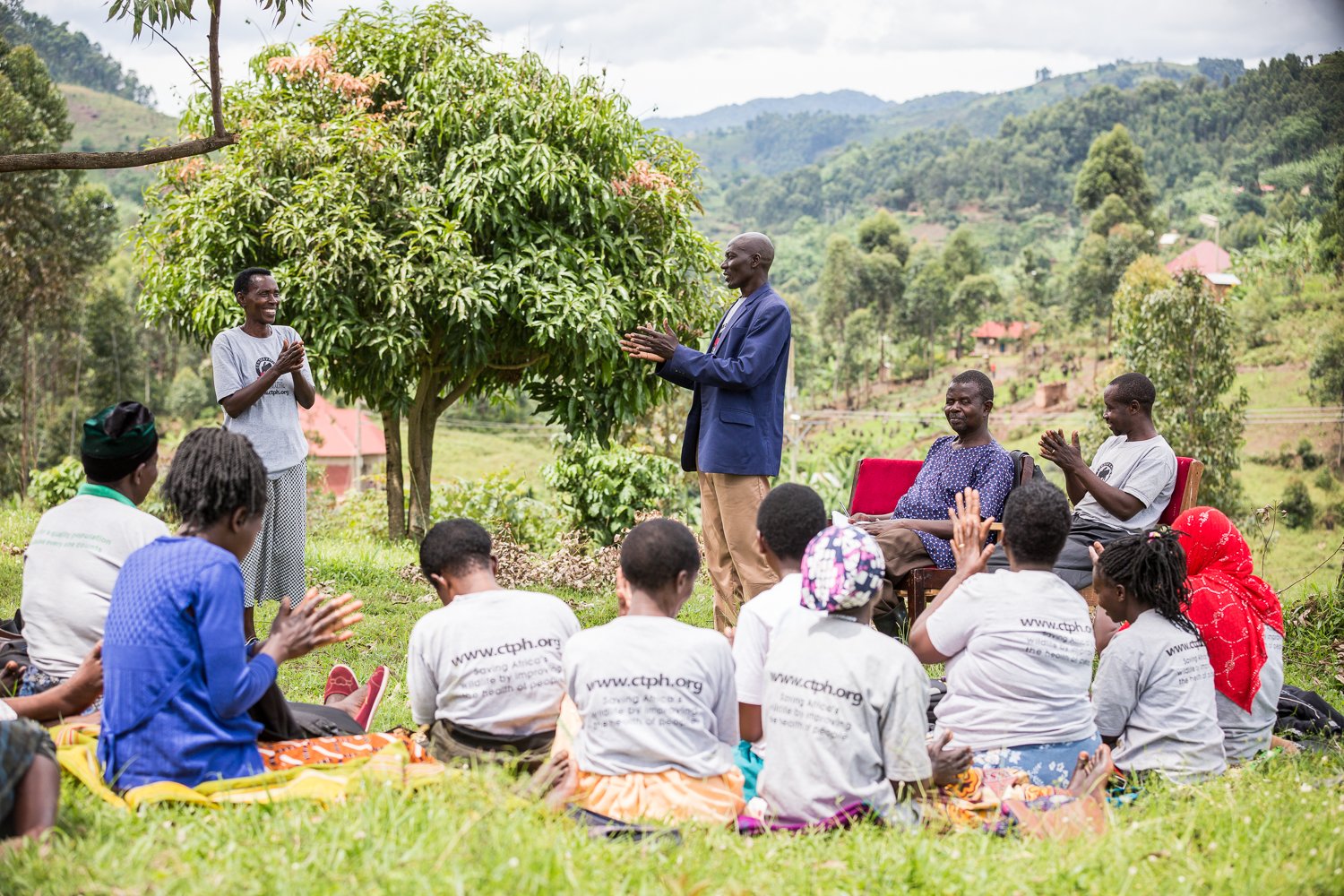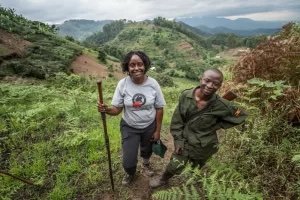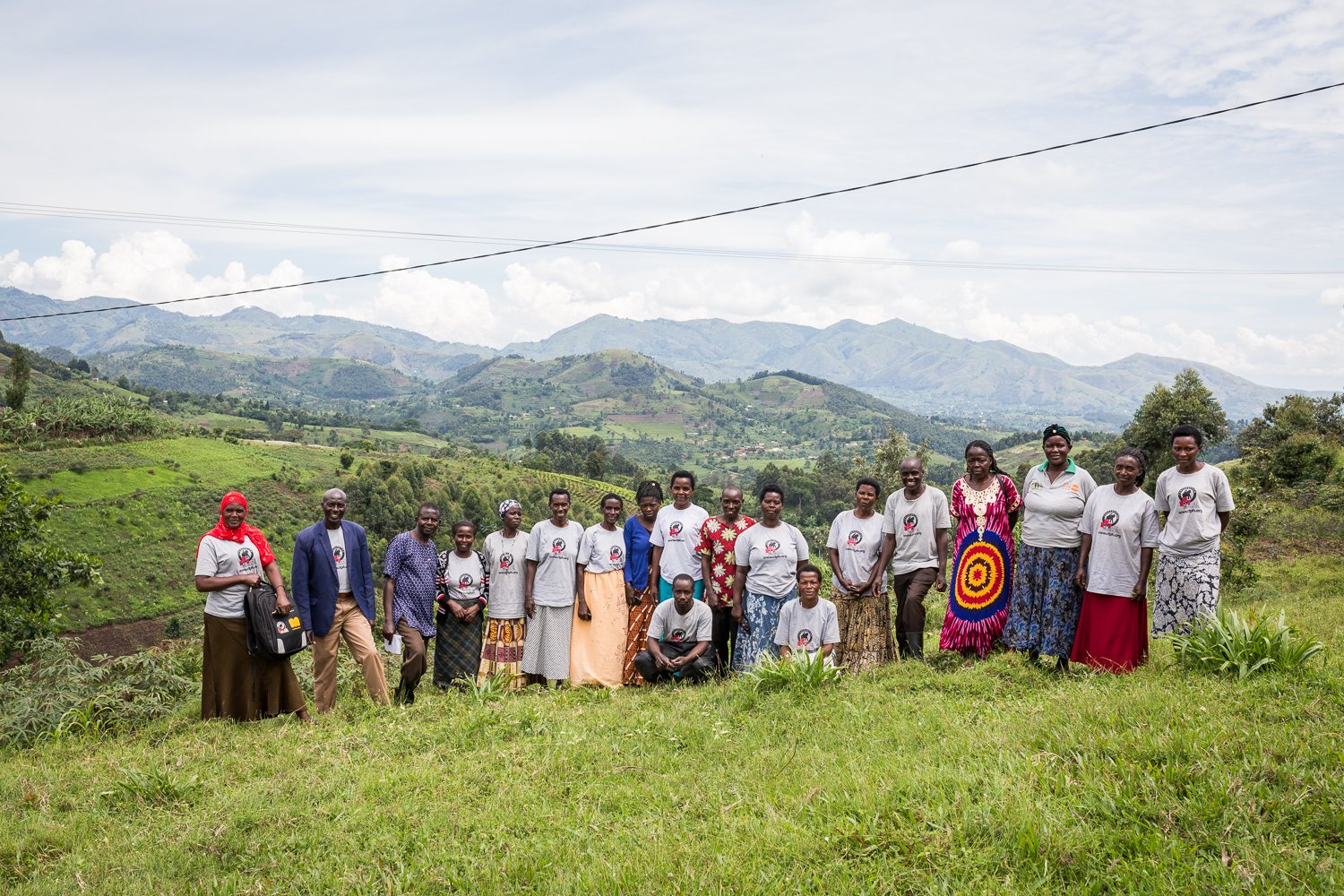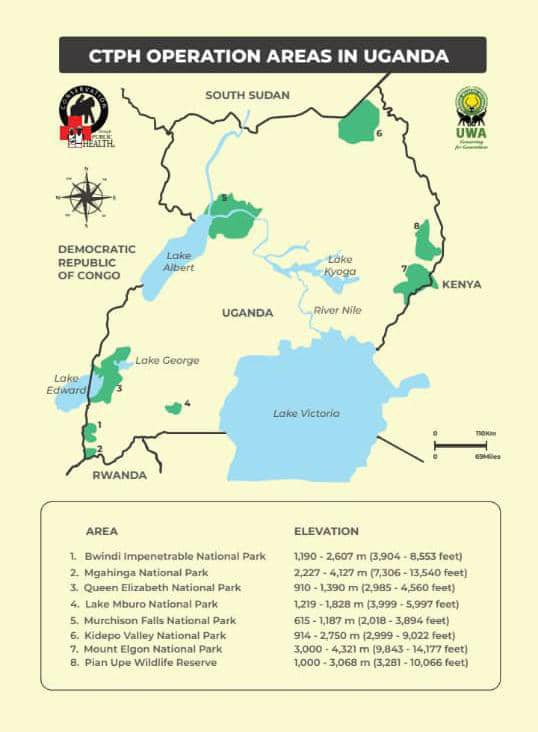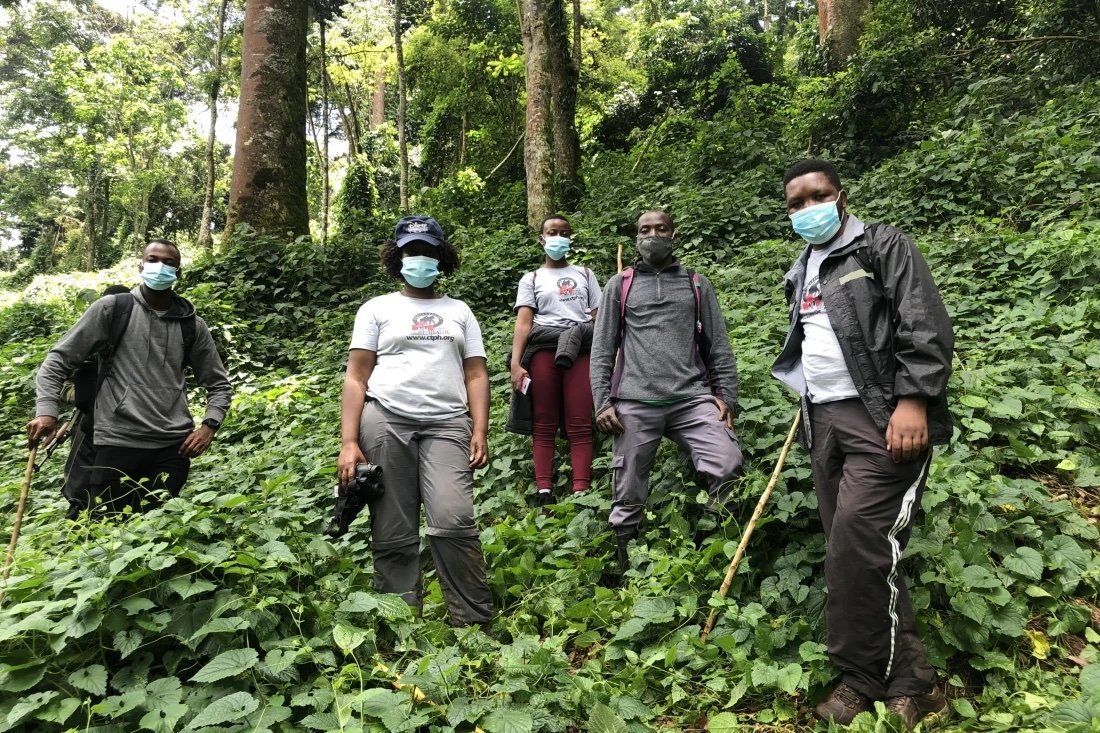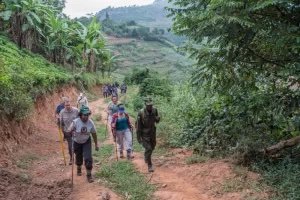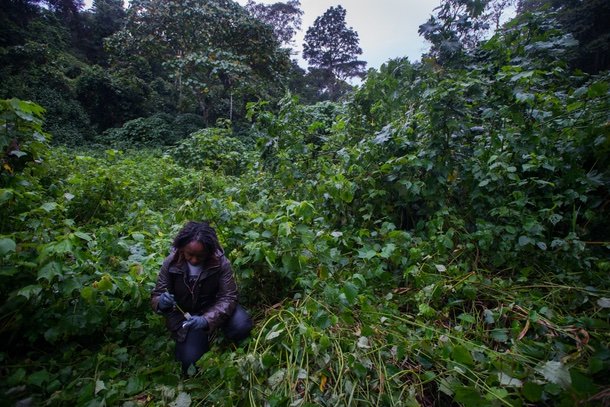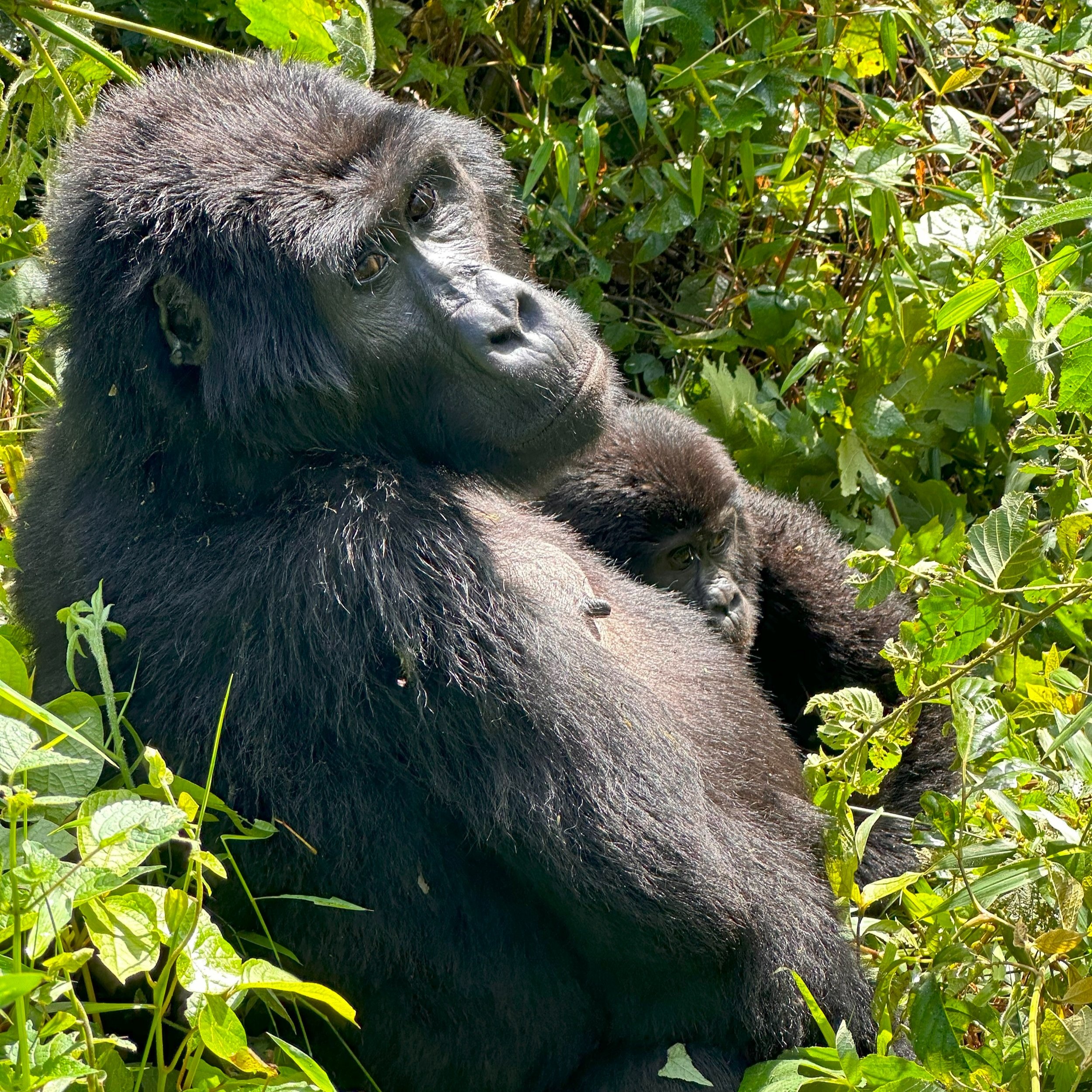
PROTECTING PEOPLE AND MOUNTAIN GORILLAS THROUGH HEALTH EDUCATION
Protecting People and Mountain Gorillas Through Health Education
Location: Bwindi Impenetrable National Park, Uganda
Grantee: Conservation Through Public Health (CTPH)
Nominated by: Wilderness Travel
Year: 2023
Grant: $15,000
Goal
To promote biodiversity conservation by enabling people, gorillas, and other wildlife to coexist through improving their health and livelihoods in and around Africa’s protected areas.
Project Summary:
CTPH will develop contextually and culturally appropriate Information, Education, and Communication (IEC) materials for implementing a community-driven One Health model to support increased knowledge of zoonotic disease transmission between people and gorillas and mitigate zoonotic disease transmission to the world's remaining mountain gorillas and other wildlife who face a major and increasing threat of infection with zoonotic diseases. Through the proposed ATCF-funded project, CTPH will develop culturally and contextually appropriate image and graphic-based IEC materials to support community understanding of One Health and support increased uptake of practical actions that can be taken by community members to improve their health, well-being, hygiene, sanitation, and zoonotic disease awareness, reducing threats to wildlife and their habitats.
How will this project support the community, culture, and landscape?
Building on CTPH’s existing Model Household project, CTPH will build and develop community IEC materials to support increased knowledge and understanding of zoonotic diseases and mitigating their transmission, including supporting the uptake of actions that individuals can take to improve household health and wellbeing. By doing so, the project will support improved access to health services and information, including voluntary family planning, hygiene, sanitation, clean water, infectious disease prevention and mitigation, and supporting early referral for treatment when needed. The project will also support improved livelihoods, including linking community members to CTPH’s social enterprise, Gorilla Conservation Coffee, helping to reduce dependence on tourism revenue and increase access to alternative sources of livelihood and income. By improving the health and well-being of community members living in proximity to BINP, the project will reduce threats to the endangered mountain gorillas and their habitat, preserving its biodiversity and travel allure. CTPH has been implementing integrated health and conservation activities around BINP for 17 years, including risk assessments and impact assessments, to ensure that there are no negative impacts on the community, culture, or landscape.
What are the impacts you hope to see as a result of this project?
At least 80% of individuals living in BINP parishes with high human and gorilla conflict have knowledge about zoonotic disease transmission between livestock, humans, and gorillas within 12 months and are taking action to reduce their risk of infection from, or transmission of, zoonotic diseases.
At least a 10% reduction in incidences of human and livestock infectious diseases and parasites amongst endangered mountain gorillas in BINP within 12 months.
At least a 50% increase in the percentage of households surrounding BINP with at least 9 of the 12 identified key One Health performance indicators, making them 'Model Households' according to the CTPH 'Model Households' metric within 12 months.
At least a 15% increase in voluntary family planning uptake in communities around BINP within 12 months.
How will this project combat climate change?
The project is supporting the implementation of community-driven One Health approaches which will reduce the risk of zoonotic disease transmission between people (community members, travelers, and livestock) and the endangered mountain gorillas, supporting the uptake of activities that preserve biodiversity, currently under threat from human activity and heightened by climate change and increasing population pressure. Given the increasing threat of zoonotic disease emergence and re-emergence, this project will mitigate risks of spillover events and the spread of human diseases to wild gorilla populations that have no prior immunity and create an early warning system to identify diseases of concern. The project also builds climate resilience by supporting alternative livelihoods that are not dependent on natural forest resources and building awareness amongst community members on the need for biodiversity conservation.
This project supports biodiversity protection and habitat conservation for half of the world’s remaining endangered mountain gorillas, by improving people’s health, livelihoods, and well-being and, thereby, reducing threats to mountain gorillas and their habitat driven by limited income-generating opportunities and poor health. Given the increasing risk of zoonotic diseases resulting from climate change and increasing human pressure on natural resources and wildlife, the project is critical to supporting community knowledge of how communities can implement simple, affordable changes to reduce the risk of spillover events and zoonotic disease transmission between humans and wildlife.
What does final success look like?
Increased understanding and action amongst community members of a community-led One Health approach which reduces zoonotic disease and other risks to wildlife and their habitats and is easily replicable and scalable.
Get to know the Buhoma Community
What makes this community unique?
Given the close genetic likeness between gorillas and humans, sharing 98.4% of DNA, the communities surrounding BINP and visitors to BINP pose a unique threat to the endangered mountain gorillas, that of zoonotic disease transmission, the potential global impact and consequences of which was evidenced during the recent COVID-19 pandemic. It has been widely reported that zoonotic disease outbreaks and transmission risks are increasing with increasing global temperatures and increasing contact between people, wildlife, and livestock. We urgently need effective approaches for mitigating and monitoring the risks of zoonotic disease transmission to the world’s wildlife, and vice versa. The timing for this project is, therefore, critical: there is a great need to support the implementation of One Health actions that reduce the risk of zoonotic disease spillover events, transmission, and spread - and provide an early warning system for cases of transmission. Ultimately, scaling One Health approaches will improve whole ecosystem health, for the benefit of all. Importantly, the Model Household approach presents an opportunity to implement a One Health approach at the community level, supporting its transition from policy to a simple, actionable, and practical blueprint for implementation by community members and organizations.
Conservation challenges
Mountain gorillas are endangered with only just over 1000 left in the world. Successful conservation efforts have led to their increase over the past 25 years from 650 to 1063. However, they remain threatened by habitat loss, poaching of other wildlife in their habitat, and at risk of infection with zoonotic disease from closely related humans whom they interface with, including tourists and local communities. The Mountain Gorillas of Bwindi Impenetrable National Park (BINP) are particularly at risk from zoonotic disease transmission as population growth in Uganda is amongst the fastest in the world and remote and marginalized communities surrounding BINP are amongst the most impoverished in Uganda, with very little access to health services and very few livelihood opportunities. Poor human health increases the risk of onward transmission of diseases to the gorillas, heightened by increased frequency and closeness of contact as community members are compelled to enter the forest illegally to search for food and fuelwood to meet their basic needs, with few other livelihood opportunities to depend on for income.
Does the Buhoma community rely on a protected area to protect visitors?
Communities surrounding BINP are heavily dependent on tourism revenue, with travelers being attracted to BINP for the incredible opportunity to trek the Mountain Gorillas. Community members are engaged in trekking, employed at lodges, shops, and hotels, and make a living selling handicrafts for souvenirs. The heavy dependence on tourism was evidenced by the COVID-19 pandemic and associated tourism crash which saw a rapid and immediate increase in poaching and other illegal activity in the forest as livelihoods were decimated by the cessation of tourism. Without alternative livelihood opportunities, community members were forced to rely on natural resources to meet their basic needs, including resorting to illegal activity in the forest. Just a few months after the start of the pandemic, BINP saw the first gorilla poaching incident with one of the habituated gorillas, named Rafiki, being killed at the hands of a bush meat poacher who was startled by the gorilla when hunting for smaller wildlife in the park.
How will this project support the communities impacted by tourism?
The project improves the health and livelihoods of communities surrounding BINP, Uganda’s most visited National Park.
Q1 2024 Progress Report Summary
Q2 2024 Progress Report Summary
Donate Today!
This project has already been awarded $15,000 by global businesses in the travel and outdoor industries! Help them achieve even more impact and make a donation today!
More about the Conservation through public health
CTPH aims to be an internationally-renowned leader in gorilla and wildlife conservation by improving the health of wildlife and ecosystems and humans and their livestock in and around Africa’s protected area. This is achieved through a multidisciplinary approach that focuses on preventing and controlling disease transmission between closely genetically related species such as people and gorillas, and cattle and buffalo, and promoting a better quality of life that reduces local communities’ dependence on fragile habitats to meet their basic needs.


